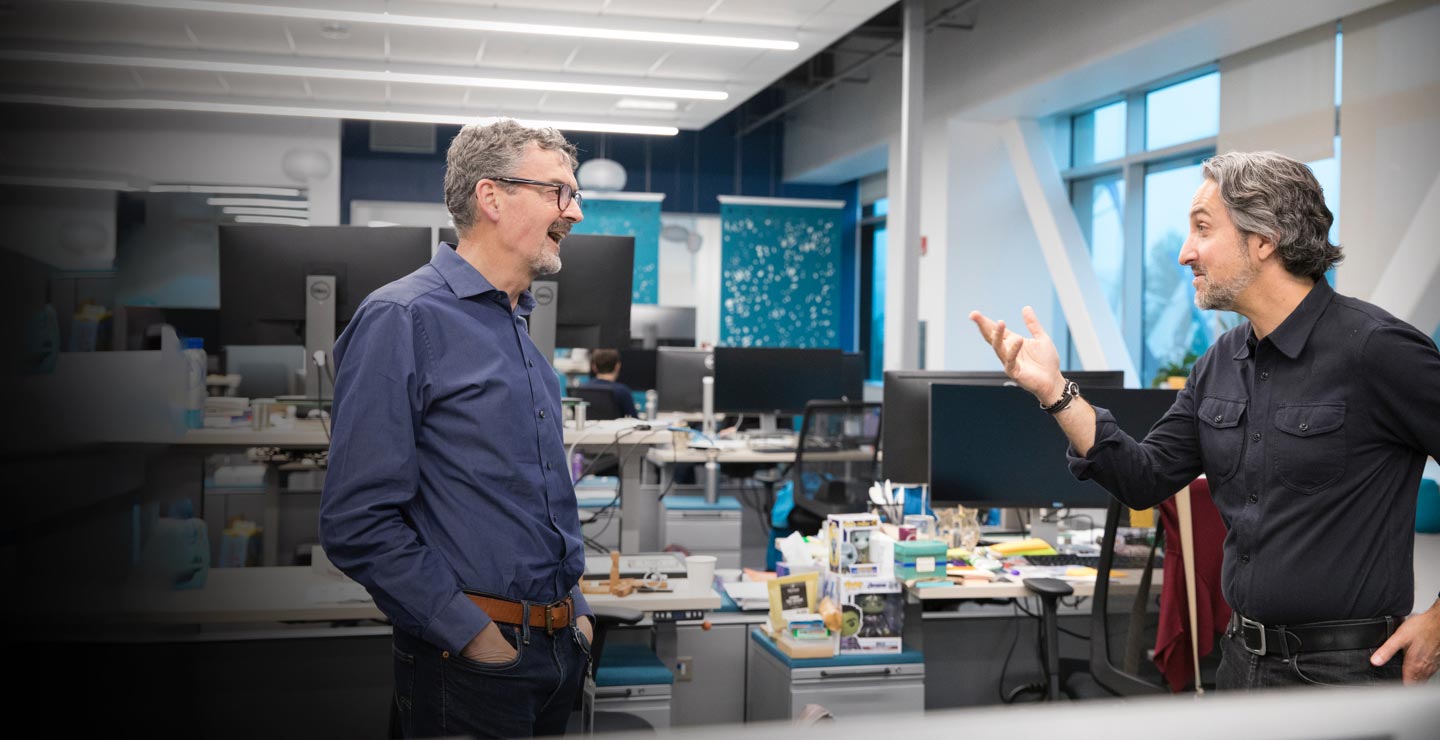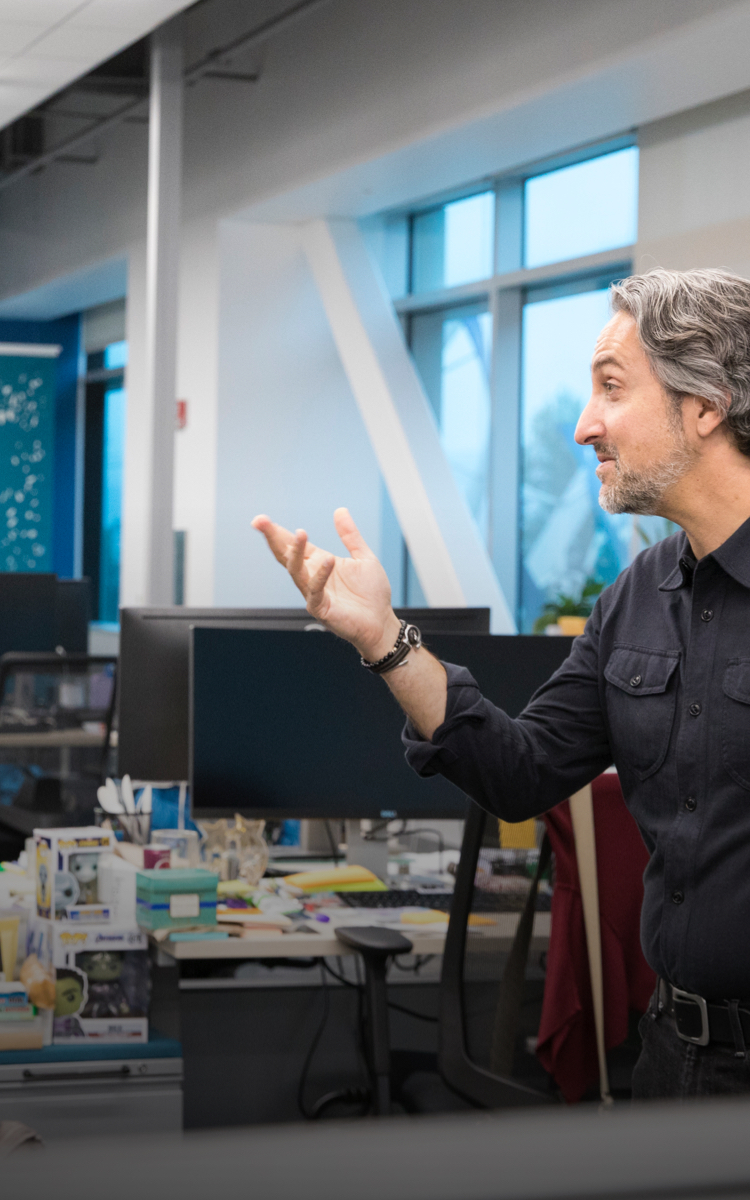Sort by
Sort by
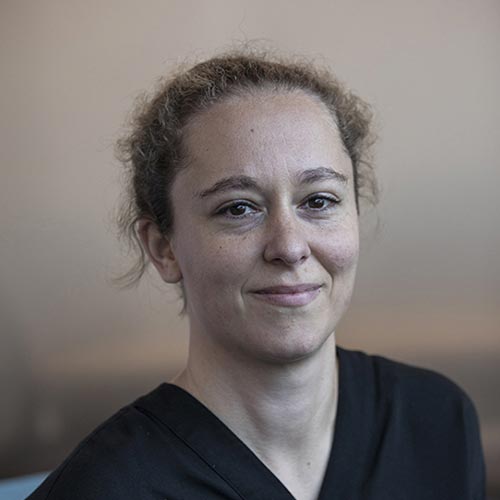
Alice Starr


Alice Starr
Alice Starr is a software engineer, with experience designing and architecting scientific research applications. At insitro, Alice is focused on laboratory information and data architecture, making sure we make the most of our generated data. Prior to insitro, she was at Genentech, designing data solutions for the translational research and pathology organizations. She loves to tackle data challenges to advance science, which provides constant opportunities to learn.
Alice received a BS and MS in Mathematics and Computer Science from EPF, France and ITESM, Mexico.
When not working or playing with her two daughters, Alice likes to read and be outdoors as much as possible, walking or running on the beautiful California trails.
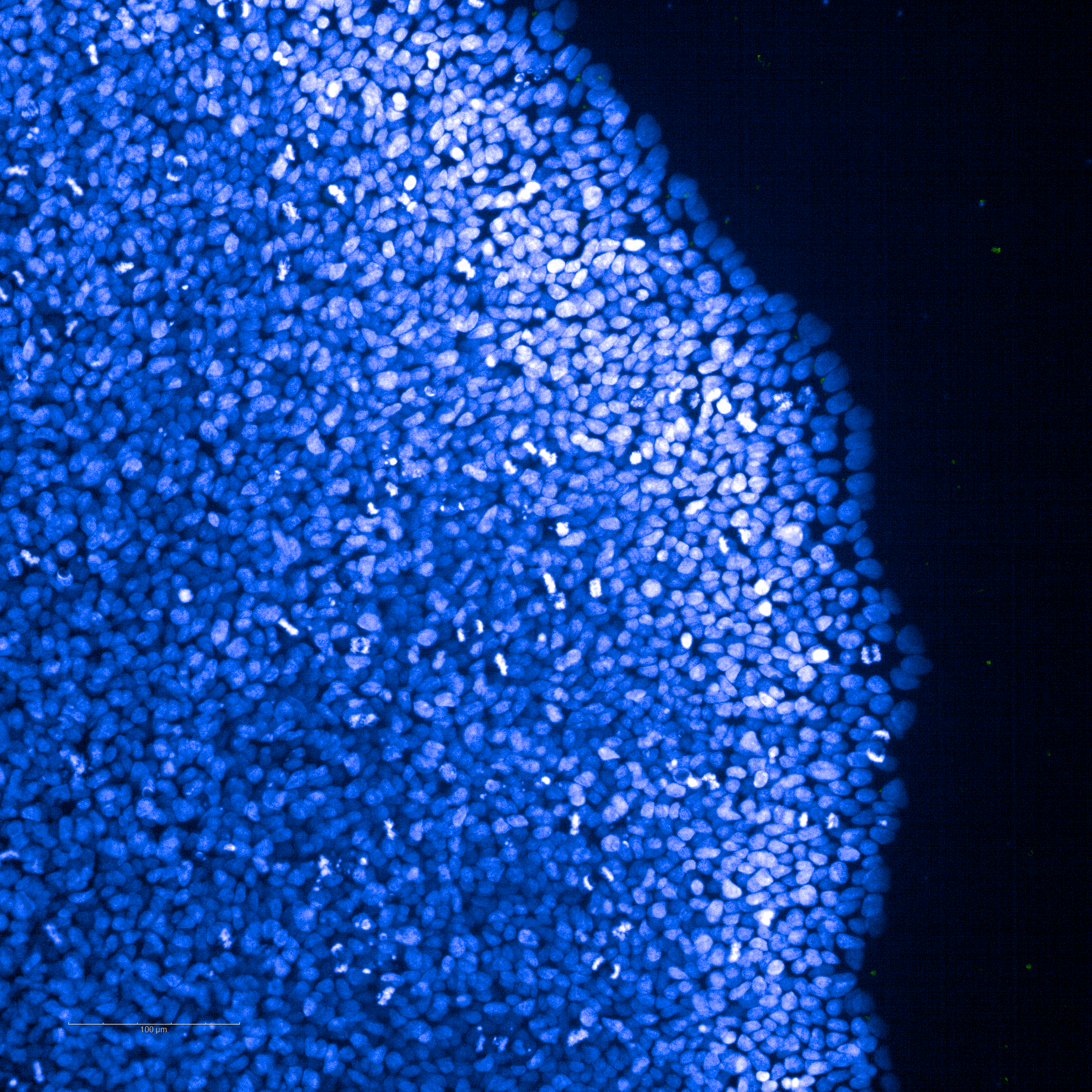
Anna Shcherbina


Anna Shcherbina
Anna works with insitro’s Data Science and Machine Learning team, developing machine learning approaches to study the role of noncoding variation in disease. Her current work focuses on building deep learning capabilities to uncover additional candidate drug targets from imputed GWAS studies across several cohorts.
Anna recently completed her PhD in Biomedical Data Science from Stanford, where she was a BioX and NVIDIA Fellow. Her PhD work focused on developing deep learning models to study gene regulation and to functionally characterize non coding variation. She also worked on statistical analysis methods for wearable and mobile health data, such as accelerometry data. Prior to completing her PhD, Anna worked on metagenomic data analysis at MIT Lincoln Laboratory.
In her free time, Anna likes to read science fiction and fantasy novels, spend time with her cat, and go hiking.
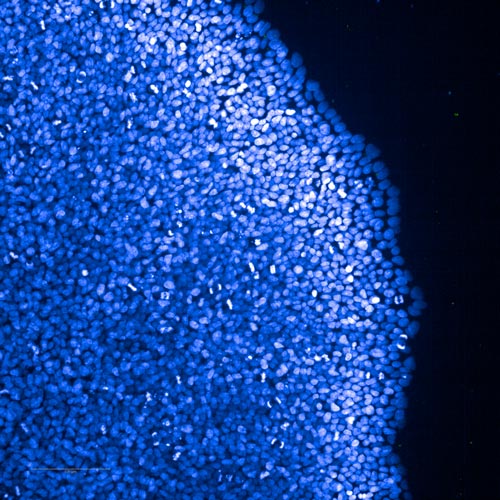
Avantika Lal


Avantika Lal
Avantika works with insitro’s Data Science and Machine Learning team, applying computational methods to analyze multidimensional genomic data and uncover disease biology.
Prior to insitro, Avantika was a senior scientist at NVIDIA, where she worked at the interface of deep learning, GPU computing, and genomics. During her postdoctoral fellowship at Stanford, she developed machine learning approaches to analyze multi-modal genomic data from cancer cells.
Outside of work, she enjoys hacking on open-source projects, reading science fiction novels, and discovering new foods.
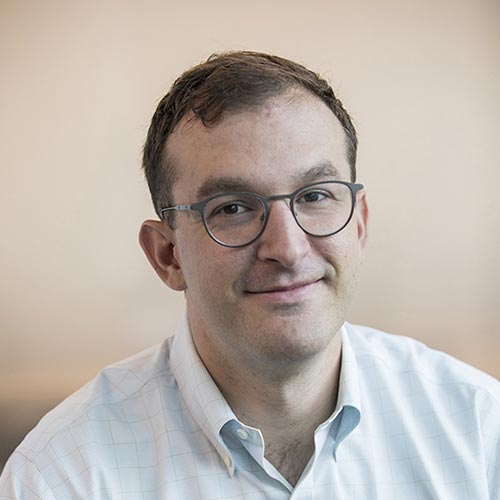
Baris Ungun


Baris Ungun
Baris works within insitro’s Data Science and Machine learning team, where he applies his dual training in medicine and convex optimization to problems in bioinformatic modeling of disease states and scalable algorithmic approaches to interpreting petabyte-scale genomic and imaging datasets.
Baris grew up in the Bay Area. In a previous life, he studied Chemical Engineering at Princeton and worked in research and development at Gilead Sciences. He then spent the majority of the last decade in an MD-PhD program at Stanford, where he worked with Lei Xing and Stephen Boyd on large-scale computing problems in radiation therapy treatment planning. His research focus was on developing high-performance convex approximations to components of the massive, nonconvex problems arising in medicine and biomedicine.
Outside of work life interests include: the ocean, reading (mostly fiction), and seeing as much live music as possible.
Bowen Liu

Bowen Liu
Bowen Liu is a computational chemist with experience working at the interface of chemistry, drug discovery, and machine learning.
Bowen grew up in New Zealand and received his dual BSc/BCom undergraduate degrees at The University of Auckland majoring in Chemistry, Applied Mathematics, Finance and Accounting. Afterwards, he moved to the Bay Area and completed his Ph.D in Chemistry at Stanford under the supervision of Jure Leskovec and Vijay Pande. At Stanford, Bowen focused on developing machine learning methods for problems in small molecule drug discovery and lead optimization, namely molecular property prediction, molecule generation, and chemical reaction prediction.
In his spare time, Bowen enjoys reading, playing video games, and going on staycations.
Google scholar
View articles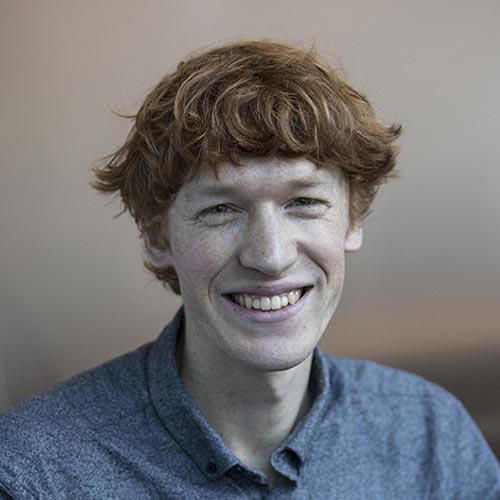
Chris Probert


Chris Probert
Chris Probert is a computational biologist and computer scientist with extensive experience building deep learning models for genomic data. His current work at insitro is focused on enabling large-scale deep learning on functional genomic data produced by the high throughput biology platform.
Chris is a PhD candidate in Computational Biology (Genetics) at Stanford working with Anshul Kundaje and Christina Curtis where he was an NSF Fellow and an Accel Innovation Scholar. His PhD work focused on large-scale machine learning analysis of functional genomics datasets, including imputation and superresolution of genome-wide epigenomic signals, unsupervised methods for learning differentiation lineages in single-cell RNA-seq, and tissue of origin inference from cell-free DNA fragmentation patterns. He has extensive engineering experience building scalable infrastructure and data architectures to support distributed training of deep learning models from petabyte-scale functional genomic datasets. He also holds an MS and BS in Computer Science, and experience working in both research and product focused software engineering roles at Google, Illumina, and Counsyl.
Outside of work, Chris enjoys running, cycling, backpacking, and backcountry skiing.
Christoph Klein

Christoph Klein
Christoph is a scientist turned software engineer who loves bridging the gap between software and the life sciences. His current work focuses on developing the scientific pipelines that enable our biology and machine learning teams at insitro.
Previously at Myriad Genetics and Counsyl, Christoph led engineering teams charged with the clinical interpretation of variants detected in patients. These teams develop the pipelines that filter thousands of variants per sample down to the few that cause rare diseases, predispose you to elevated cancer risks or challenge the health of your pregnancy.
Christoph holds a Ph.D. in Chemical and Biomolecular Engineering from Vanderbilt where he studied tribology using molecular dynamics and built open source tools to enable large scale screening studies.
Outside of work, Christoph enjoys biking, surfing, reading and spending as much time outside as possible with his partner and his pupper, Oscar.
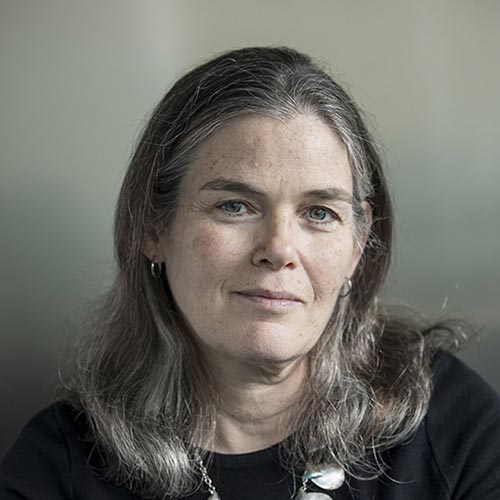
Daphne Koller, Founder & CEO, Board Member
CEO, Founder


Daphne Koller, Founder & CEO, Board Member
Daphne Koller is the CEO and Founder of insitro.
Daphne was the Rajeev Motwani Professor of Computer Science at Stanford University, where she served on the faculty for 18 years. She was the co-founder, co-CEO and President of Coursera for 5 years, and the Chief Computing Officer of Calico, an Alphabet company in the healthcare space. She is the author of over 200 refereed publications appearing in venues such as Science, Cell, and Nature Genetics, and has an h-index of 130. Daphne was one of TIME Magazine’s 100 most influential people and is a MacArthur Fellow, a member of the National Academy of Engineering, and a Fellow of the American Academy of Arts and Sciences and the International Society of Computational Biology.
In her spare time, Daphne enjoys spending time with her family, especially while traveling to exotic destinations (62 countries so far and counting), where they enjoy hiking, sailing, scuba diving, and eating fresh local food.
Google scholar
View articles
Donald Naegely


Donald Naegely
Donald is a Senior Lead Engineer, primarily working on developing strategies for internal pipelines, data provenance, and cloud infrastructure. As part of the data engineering team, Donald is working with the other teams to scale and automate internal pipelines and improve the common infrastructure to support future analyses.
Previously, he was a principal engineer at Counsyl (acquired by Myriad) working across many teams helping to develop a new LIMS system, a platform for variant curation, bioinformatics pipelines, and moving to a cloud infrastructure from on premises.
Donald received a BS and MS in Computer Science from Drexel University.
In his free time, Donald enjoys backpacking, skiing, biking, and reading.
Edward Chee

Edward Chee
Edward is a Staff Software Engineer at Insitro. He has diverse industry experience ranging from working horizontally across large cross-functional teams at companies like Google and Oracle, and also writing code across the entire tech stack at smaller startups.
When his wife was diagnosed with an intractable cancer, Edward learned first-hand the criticality of data-driven medical decisions and developed a custom immunotherapy based treatment plan at a time when the modality was not yet proven. Consequently, he has a passion for advancing human health through improved data-driven decisions and the leveraging of novel medical therapies and modalities.
Edward holds an M.S. in Electrical Engineering from Stanford University, a B.S. in Electrical Engineering and B.A. in Business Economics from Brown University.
In his free time, Edward enjoys chess and improvising on the button accordion and piano.
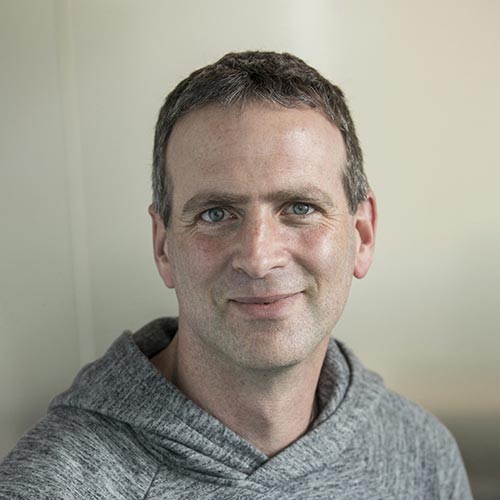
Eilon Sharon
Director of Data Science


Eilon Sharon
As Director of Data Science, Eilon is leading the development of cutting edge machine learning, computational biology and statistical genetics approaches to improve drug development.
His team uses machine learning to integrate observations from large population-level studies with results from various high throughput in-vitro assays to identify potential drug targets.
Eilon has extensive experience in applying machine learning to decipher various biological questions. After completing a dual major B.Sc. in biology and computer science at Tel Aviv University, Eilon joined Rosetta genomics, where he worked on discovering miRNA genes in humans and predicting their targets. He then earned a PhD from the Weizmann Institute of Science under the supervision of Prof. Eran Segal. During his PhD, he developed synthetic biology Massively Parallel Reporter Assay (MPRA) and statistical and thermodynamic models, which he applied to decipher the encoding of transcriptional regulation in yeast. Following graduation, Eilon transitioned to a postdoc at Profs Jonathan Pritchard and Hunter Fraser labs in Stanford Medical school department of genetics. At stanford, Eilon worked on a diverse set of projects including: detection and fine mapping of genetic associations with T cell receptor V-genes expression; software for transplant health monitoring using cell-free DNA sequencing (which was commercialized by Stanford); and detection of functional genetic variants using a novel high throughput CRISPR editing. Eilon is the author of over 20 refereed publications appearing in venues such as Cell, Nature Biotechnology and Nature Genetics.
In his free time, Eilon enjoys hiking and camping outdoors with his family.
Francesco Paolo Casale

Francesco Paolo Casale
At Insitro, Paolo works within the Data Science and Machine Learning Team, where he applies his academic training in statistical genetics, computational biology and machine learning to identify and characterize functional mechanisms in human disease.
Previously, he was a postdoctoral researcher at Microsoft Research New England, working on automated machine learning and on deep learning models for imagining genetics. Before that, he obtained a PhD in statistical genetics from the University of Cambridge and the EMBL-European Bioinformatics Institute, where he developed new methods for genetic association studies and contributed to international projects such as the last phase of the 1000 Genomes Project and the Blueprint initiative. Previously, he obtained a bachelor’s and master’s degree in physics from the University of Naples, Italy.
In his spare time, Paolo enjoys playing soccer, powerlifting, motorcycling and travelling.
Google scholar
View articles
Gabriel Dreiman


Gabriel Dreiman
Gabriel grew up in Boulder, Colorado. He received his BS in Biological Engineering from Cornell University, and his MSc in Machine Learning from University College London. He completed his master’s thesis at Alzheimer’s Research UK’s Drug Discovery Institute where he studied applications of ML to High Throughput Screening.
In his free time, Gabriel competes in triathlons in addition to skiing and climbing. He also enjoys cooking and backpacking.
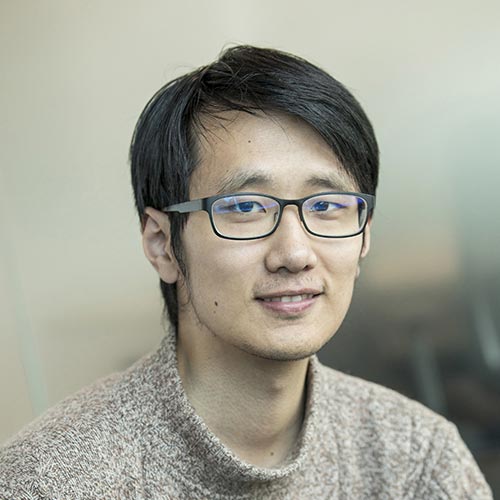
Haoyang Zeng


Haoyang Zeng
Haoyang Zeng is a computational biologist with extensive experience in building machine learning models for functional genomics and therapeutic design.
Haoyang grew up in Sichuan, China, home to most of the panda bears in the world. He earned his BE in Electrical Engineering at Tsinghua University, and his MS and Ph.D. in Computer Science at the Massachusetts Institute of Technology under the supervision of David Gifford. His Ph.D. research focused on developing statistical and deep learning methods for learning the regulatory function of DNA sequences, predicting the binding affinity of peptides to the Major Histocompatibility Complex (MHC) for effective neo-antigen vaccine formulation, and designing novel antibody sequences with improved binding affinity and specificity. Haoyang has co-authored 16 publications appearing in venues such as Nature Biotechnology, Nature Genetics, Cell Systems, Genome Research, and Nucleic Acid Research.
During his free time, Haoyang enjoys playing acoustic guitar, drone photography and traveling.
Google scholar
View articlesHari Somineni

Hari Somineni
Hari Somineni is a human geneticist by training interested in utilizing a multidisciplinary approach that combines the new tools of statistical genetics and genomics with classic population science and molecular biology to impact human health.
Prior to joining insitro, Hari was a statistical geneticist at Goldfinch Bio, leveraging whole-genome sequencing data to understand disease pathogenesis and identify novel targets for kidney diseases. Before that, he obtained a PhD in human genetics and molecular biology from Emory University, where he worked on genetics and genomics of inflammatory bowel disease. He obtained a master’s degree in Pharmacology and Toxicology from Wright State University, and then worked at Cincinnati Children’s Hospital Medical Center on genetics and genomics of asthma.
In his spare time, Hari enjoys hiking, long walks across the Charles River, and playing cricket.
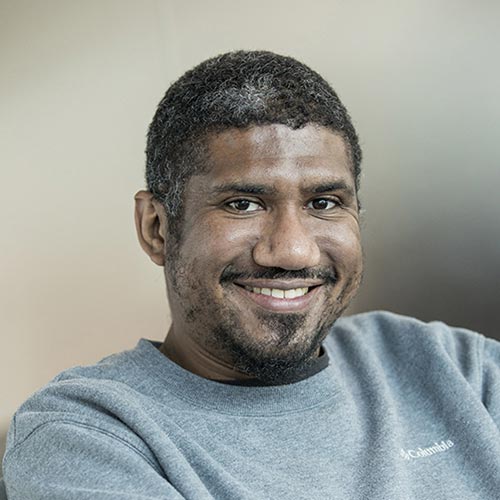
Hervé Marie-Nelly


Hervé Marie-Nelly
Hervé is a very enthusiastic applied mathematician with strong research interests in molecular and cell biology. His current work at insitro is focused on the development of new computational methods to generate and extract valuable insight from imaging experiments.
Hervé earned a Master of Machine Learning, Computer Vision and applied mathematics from the Ecole Normale Supérieure in Paris before pursuing a PhD at the Pasteur Institute, where he spearheaded the development of FISH-Quant, a software to quantify 3D microscopy images of single RNA molecules, and GRAAL, a Bayesian genome assembler using HiC data. As a postdoc in Robert Tjian’s lab at UC Berkeley, he developed computational methods to improve the quantification of high resolution microscopy data for insight into transcription regulation and spatial genomic organization.
During his free time, Hervé enjoys hiking and giving autographs pretending he is a famous NBA player.
Google scholar
View articlesGitHub
https://github.com/rvmn57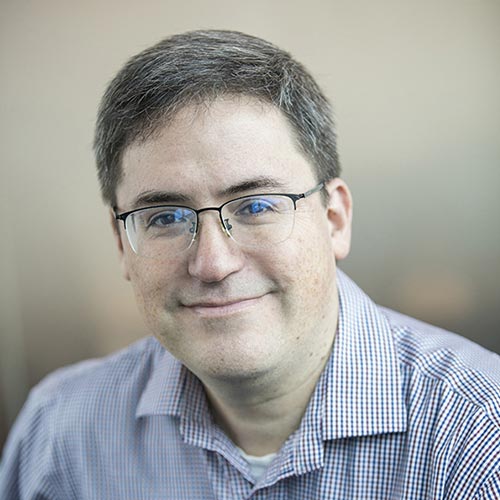
James Warren


James Warren
James is a Senior Lead Data Engineer, primarily working with distributed systems and big data applications. As part of the Data Engineering team, his goal is to facilitate the development of machine learning pipelines, focusing on scalability, efficiency and repeatability.
James was previously a Ph.D. candidate at Stanford University, where he devised robot motion strategies for the Honda Asimo and Mars rover prototypes. He holds a M.Sc. in Scientific Computing from Stanford and a B.Sc. in Mathematics From Texas A&M University. Prior to joining Insitro, James worked on creating bioinformatics tools at Roche and Helix, and he co-authored a book on big data architectures.
In his free time, he chases after his dog and three cats, enjoys playing board games, travels internationally, and hacks on open-source software projects.
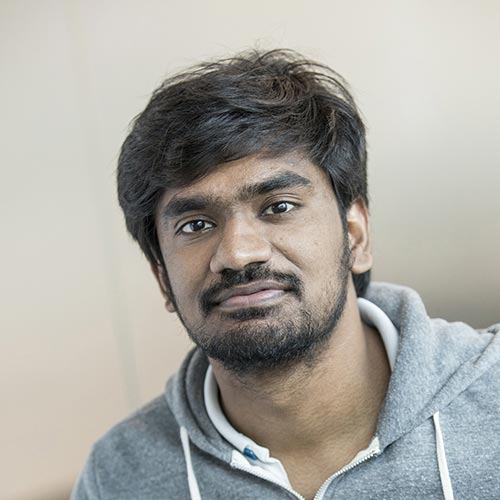
Jeevaa Velayutham


Jeevaa Velayutham
Jeevaa is a Computer Science masters student from University of Toronto. At insitro, Jeevaa focuses on building machine/deep learning models to improve the effectiveness of our high-resolution cellular microscopy platform.
He completed a BSc. in Applied Physics at the University of Toronto before continuing MSc. in Applied Computing at the same institution. He developed an interest in ML during his bachelors which motivated him to pursue it further. During his masters, he worked on various deep learning projects ranging from biomedical image quality enhancement to accent style transfer.
Jeevaa enjoys playing and watching soccer, traveling and spending time with friends.

John Bisognano


John Bisognano
John Bisognano is a software engineer with a background in building platforms for clinical and genomic data analyses. He looks to improve health care accessibility through technological innovation.
Previously, John was an engineer at Myriad Women’s Health working on distributed pipelines for variant classification. He also worked on data health at Cerner and as a researcher at Washington University’s Institute for Informatics, focusing on clinical informatics infrastructure and public health initiatives. John received a BS in computer science and bioinformatics from Washington University in St. Louis.
In his free time, John enjoys running, surfing and improving on his cooking skills with occasional new recipes.
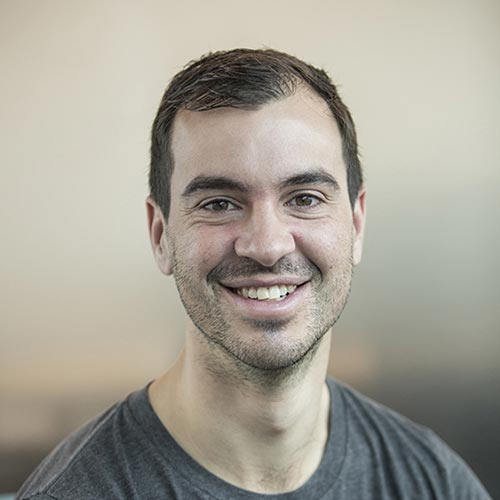
Joseph Marrama


Joseph Marrama
Joe Marrama is a software engineer with background in heathcare data and distributed systems. At Insitro, Joe is focused on ensuring that the large amount of data we generate is effectively processed and stored.
Joe is a native of Oakland. He attended Stanford where he graduated with a BS in Symbolic Systems and a MS in Computer Science. Prior to Insitro, Joe worked at Nuna Health, where he worked with the federal Medicare program to build a system that evaluated healthcare providers on quality of service and cost-effectiveness. He loves to tackle complex engineering problems in the service of helping others.
Outside of work, Joe enjoys surfing, skiing, mountain biking, cooking, and reading.

Kara Liu


Kara Liu
Kara Liu is a computer scientist with an interest in applying machine learning methods towards biology and healthcare systems. At insitro, her research focuses on generalizable modeling and uncertainty estimation.
She obtained her BA in Computer Science at UC Berkeley, where she conducted research at Berkeley Artificial Intelligence Research (BAIR) Laboratory under Professor Pieter Abbeel. Her prior research experience was in robotic manipulation using visual planning, data generalization, and deep generative models.
When she’s not coding, Kara enjoys going on runs, exploring the outdoors, reading, and learning to play the guitar.
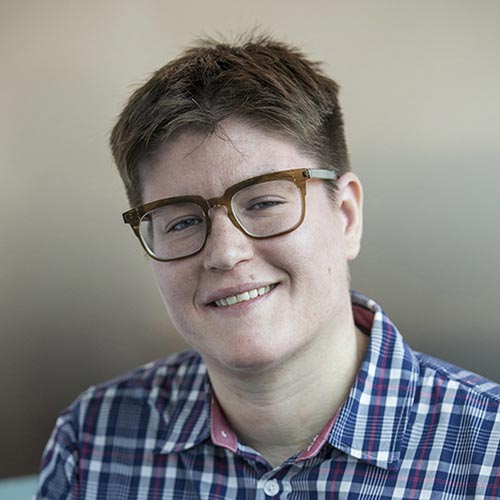
Kathryn Iverson


Kathryn Iverson
Kathryn is a Senior Software Engineer with a background in the microbiome and cloud computing. At insitro Kathryn is working with the data engineering, and data science and machine learning teams to build and scale data analysis pipelines in the cloud.
Before joining insitro, Kathryn worked at Second Genome building metagenomics pipelines and analyzing microbiome data. Kathryn received her Master’s in Bioinformatics from the University of Michigan and worked in Pat Schloss’ lab on projects in microbial ecology, clostridium difficile, and colorectal cancer.
In her free time, Kathryn enjoys playing and watching hockey, traveling, and scuba diving.
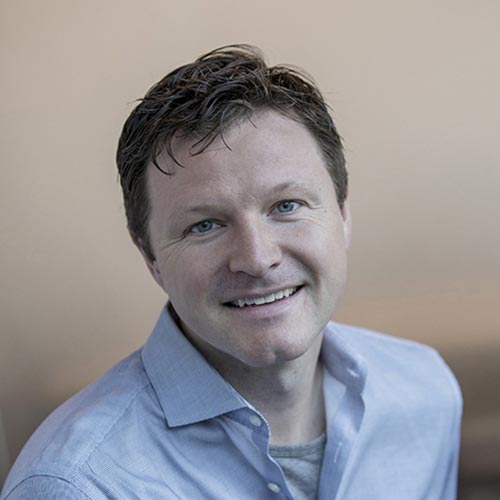
Matthew Rasmussen
VP of Data Engineering


Matthew Rasmussen
As VP of Data Engineering, Matt is responsible for leading the development of data pipelines, data storage systems, provenance tracking, and engineering infrastructure to support the high-throughput biology and Machine Learning teams at insitro.
Previously, as VP of Engineering for Myriad Genetics, Matt led engineering teams focused on software automation and genomic data pipelines to make high complexity genetic testing routine in clinical practice. During his time at Counsyl, Matt developed and scaled the software behind several successful prenatal genetic testing products.
Matt holds a Ph.D in Computer Science from MIT, where he developed efficient bioinformatic algorithms with applications in evolutionary genomics and population genetics.
In his spare time, Matt enjoys running, drawing, programming for fun and playing with his kids.
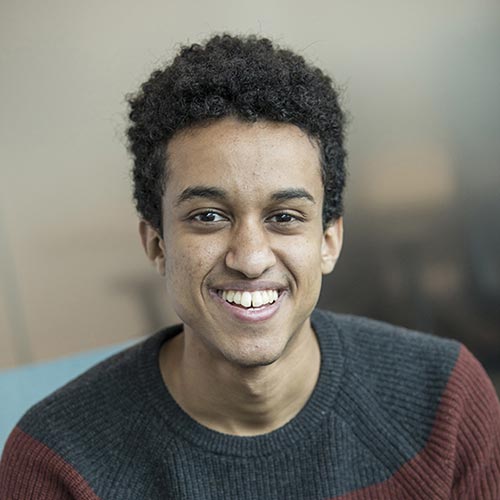
Michael Bereket


Michael Bereket
Michael is a computer scientist with a strong interest in the development and application of computational techniques for scientific discovery. His current work at insitro is focused on deriving insights from patient data to help guide disease modeling efforts.
Michael studied computer science at Stanford University, where he had the opportunity to contribute to research across machine learning and medicine.
In his free time, Michael loves to dance, run, learn new things, and joke around with friends.
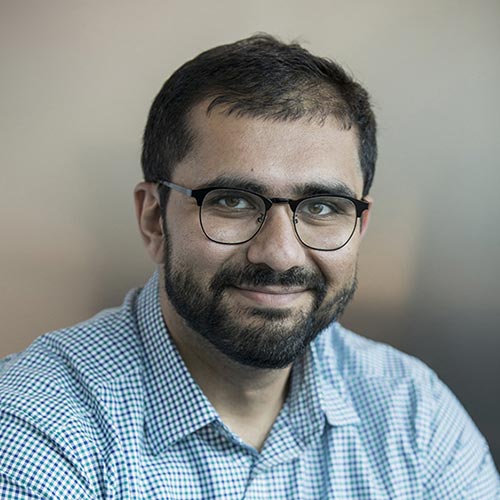
Mohammad "Muneeb" Sultan


Mohammad "Muneeb" Sultan
Mohammad “Muneeb” Sultan is a computational chemist with experience working at the interface of computational biophysics, free-energy methods, machine learning, and statistical mechanics. His current work at insitro is focused on building up the machine learning platform, and designing novel methods for analyzing the outputs of various high throughput assays.
Muneeb is a native of Pakistan and grew up in the city of Rawalpindi. He got his undergraduate degree in Chemistry at Yale, and his PhD in Physical Chemistry at Stanford under Vijay Pande. At Stanford, Muneeb focused on studying oncogenic kinases using the Folding@home distributed computing platform, collecting and analysing some of the largest simulation datasets of their kind. Simultaneously, he also worked on developing new Machine learning algorithms for accelerating free-energy calculations and molecular simulations. Muneeb has co-authored 17 publications appearing in venues such as PRE, PNAS, Nature Scientific Reports, and Nature Chemistry.
During his free time, Muneeb likes to powerlift, do yoga, explore the bay area, create digital art, cook, and listen to music.
Google scholar
View articlesWebsite
http://msultan.github.io/Olivia Warren

Olivia Warren
Olivia is a data engineer with a background in automating the analysis of biochemical data to enable timely, high-quality insights.
At insitro, Olivia is collaborating with the data engineering, machine learning, and process engineering teams to develop data pipelines and software to support wet lab and computational experimentation at scale.
Prior to insitro, Olivia designed and developed custom production data pipelines at Synthego Corporation, including an image processing pipeline to automate the analysis of live-cell microscopy images. She also held positions within Deloitte Consulting’s Life Sciences practice and at Medtronic Diabetes. Olivia earned her B.S. in Materials Chemistry from Harvey Mudd College, where she was a recipient of the Lewis Research Fellowship in Chemical Engineering. Her fellowship research focused on modeling membrane transport to inform the development of novel transdermal drug delivery systems.
While not at work, Olivia enjoys hiking and running in the Bay Area hills, playing her cello, analyzing NBA basketball statistics, and trying to keep her houseplants alive.
Omar Mahmood

Omar Mahmood
Omar is a PhD student at the NYU Center for Data Science, working on the application of machine learning to small molecules and biological data. At insitro, he works with the small molecule team on the DNA-encoded library platform.
After graduating with a BS in Applied Physics from Columbia University, Omar worked as a software engineer and completed a Masters degree at the University of Cambridge in Machine Learning. His PhD research includes predicting molecular geometry using deep learning, denoising single-cell RNA-seq data using self-supervision, and generating molecular graphs using graph neural networks.
In his free time, Omar enjoys visiting parks, hiking, cooking and watching comedy.
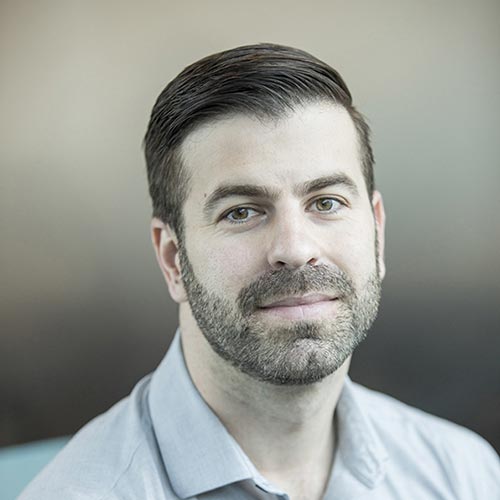
Panagiotis "Panos" Stanitsas


Panagiotis "Panos" Stanitsas
Panagiotis “Panos” Stanitsas is a computer scientist with experience in developing and deploying computer vision models in diverse application domains. At insitro, Panos focuses on the research and development of inference schemes for imaging data.
Prior to insitro, Panos worked at 3M as a Senior Data Scientist, where he focused his research and development efforts at the intersection of material science with computer vision for problems and products spanning the transportation safety space. Panos received his PhD in Computer Science and Engineering from the University of Minnesota, advised by Nikos Papanikolopoulos and Vassilios Morellas at the Center of Distributed Robotics. During his PhD, Panos derived amalgamations of deep learning models with uncertainty sampling schemes and metric learning methodologies, with emphasis on the problem of cancerous tissue recognition from hematoxylin and eosin stained tissue slides.
In his free time, Panos enjoys playing basketball, cooking, weightlifting, and feverishly trying to find the best food spots in the Bay Area.
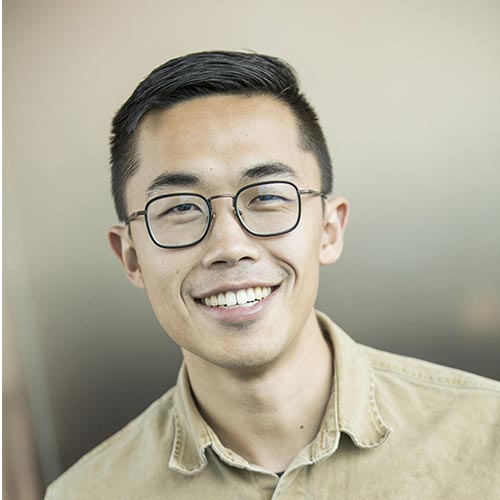
Ralph Ma


Ralph Ma
Ralph Ma is a software engineer experienced in developing, maintaining and serving machine learning models. His current work at insitro is focused on improving experimentation and serving platforms to better accommodate the scale and uniqueness of the biological data collected.
After graduating with a B.S. in Computer Science from Stanford, Ralph worked at Google using machine learning to improve labeling of places with low impressions. Also at Google, he constructed embedding models to assist efforts in automating web actions by better understanding semantics of UI elements.
In his free time, Ralph enjoys rock climbing, fishing, and winning his fantasy football league.
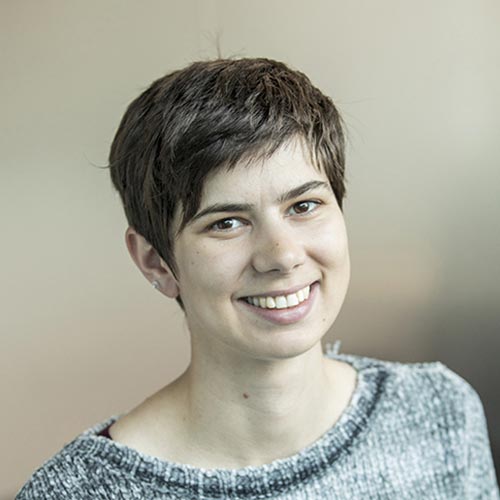
Robin Betz


Robin Betz
Robin is passionate about working at the interface of biological and computational problems. She studied Bioinformatics as an undergraduate at UC San Diego, and recently completed her doctorate in Biophysics from Stanford, where she was a NSF and NVIDIA Fellow. Her PhD work focused on molecular dynamics simulation of protein-ligand binding, integrating computational methods development with interesting discoveries about specific proteins and drugs. During the course of her research, Robin worked on parallel algorithms, online analysis of large datasets, visualization methods, and contributed to the development of multiple related software packages, including AMBER and VMD.
In her free time, Robin likes to race bicycles, contribute to open source software, and scuba dive.
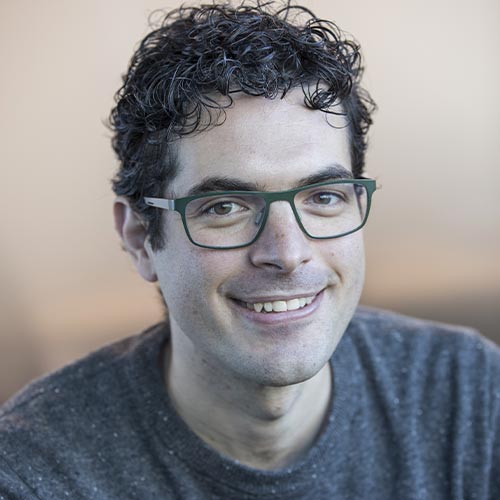
Santiago Akle


Santiago Akle
Santiago is passionate about developing computational methods to enable science. He holds a Doctorate degree in Computational Mathematical Engineering from Stanford University, where he worked with Michael Saunders and Yinyu Ye. His PhD work focused on extending interior-point methods to efficiently solve new convex problems, and was awarded the Gene Golub dissertation award for his innovations.
Before joining Insitro Santiago was a senior machine learning researcher at Apple Inc. Where, amongst other things, worked on methods to accelerate DNN training.
In his free time Santiago enjoys spending time with his family, running, trying out different cuisines and flying around in a small plane.
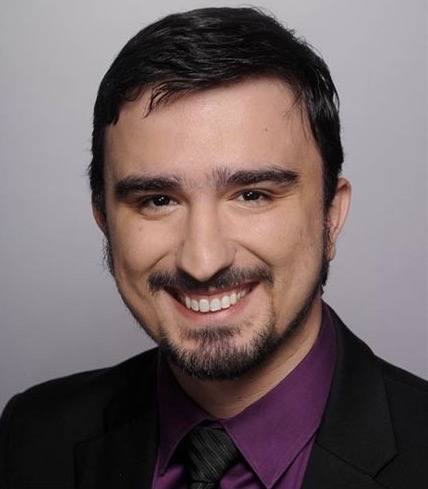
Shahin Mohammadi


Shahin Mohammadi
Shahin is passionate about the challenges and promises of interdisciplinary research. He is a firm believer in collaborative research and teamwork, and he advocates for the open-science/open-source movement. His primary interest is to build robust, reproducible, and interpretable models inspired by, grounded in, and driven by core biological knowledge. He develops computational models and methods, mathematical formulations, and rigorous statistical techniques for problems at the intersection of computational, biological, and clinical sciences, including single-cell analysis.
Shahin is an LGBTQIA right activist and works hard to educate himself and others on gender expression, identity, and equality. Additionally, he seeks to challenge the current, unfair, view(s) on mental health issues and improve support and understanding for affected individuals.
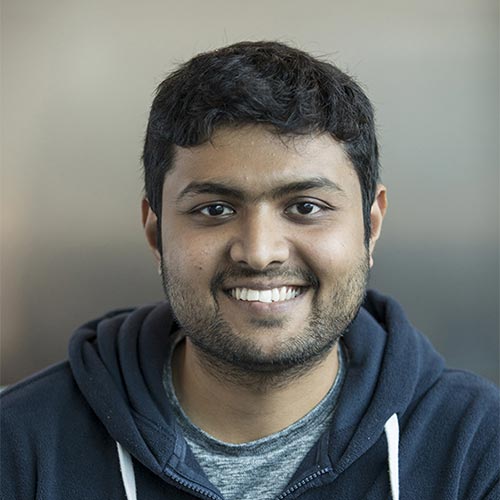
Srinivasan Sivanandan


Srinivasan Sivanandan
Srinivasan is an MSc in Applied Computing candidate in the Department of Computer Science at the University of Toronto. His research interests are machine learning and image processing for computer vision and healthcare applications. His work at insitro involves developing learning models for the efficient analysis of our high-throughput microscopy platform.
During his Master’s program at the University of Toronto, he has worked on various machine learning projects, such as early prediction of sepsis onset and adversarial imitation learning by planning. Prior to this, he was a Lead Engineer in the Medical Imaging team at Samsung Research, India working on ultrasound imaging applications. Srinivasan holds a dual degree (Bachelors + Masters) in Biotechnology and Biochemical Engineering from the Indian Institute of Technology, Kharagpur.
In his free time, Srinivasan enjoys singing, hiking and reading books.
Google scholar
View articlesThomas "Tom" Soare

Thomas "Tom" Soare
Tom is a statistical geneticist and data scientist excited about integrating genomic and deep
phenotypic data to impact human health.
Prior to joining insitro, Tom was a statistical geneticist and computational biologist at Goldfinch
Bio, conducting genetic association studies in large-scale sequencing cohorts to identify
common and rare variants that associate with a rare kidney disease, focal segmental
glomerulosclerosis (FSGS). To enable target identification and validation at Goldfinch, he also
analyzed scRNAseq data of human organoids and tissues, and analyzed image data for cellular
assays. Before that, he examined the effect of early-life adversity on psychopathology and DNA
methylation, as well as conducted genetic association studies of depression and cortical
thickness at the Center for Genomic Medicine at the Massachusetts General Hospital. Tom
holds a PhD in Psychology with a focus on Population Genetics from the University of
Washington where he studied the effect of satellite image-derived landscape features on
dispersal of an ant species.
In his spare time, Tom enjoys hiking, camping, sailing, and traveling with his family.
Tom Stocky
VP of Product

Tom Stocky
As VP of Product, Tom is responsible for product strategy, planning, and user experience for our data systems and software tools.
Previously, Tom was a technology fellow at Denali Therapeutics, where he helped expand the use of machine learning techniques to support their discovery work, and helped further develop their digital strategy for engaging with patients.
Tom has built technology products for more than 15 years. As VP of Search at Facebook, he grew the service to more than 2 billion searches per day across the community’s more than 3 trillion posts. He also led teams responsible for profile, entity graph, and language technology. At Google, he helped start the developer products team and was part of the founding team for Google App Engine, which laid the foundation for Google’s Cloud Platform. He later led teams working on Google search, commerce, and travel products. As Head of Learning Platform at the Chan Zuckerberg Initiative, he oversaw the engineering, product, and design teams for their education technology efforts.
In addition to his work at insitro, Tom serves on the board of directors for the Banner Alzheimer’s Foundation and on the scientific advisory board for Denali Therapeutics. He holds an MEng and BS in Computer Science & Electrical Engineering from MIT and an MBA from MIT Sloan.
In his free time, Tom enjoys puzzle/escape rooms, anything baseball or softball, and going on adventures with his family.
Tommaso Dreossi

Tommaso Dreossi
Tommaso Dreossi is a computer scientist with a strong passion for applied machine learning and theoretical computer science.
Prior to joining insitro, Tommaso was an Applied Scientist at Amazon Search building machine learning models for Amazon’s search engine and a postdoctoral researcher at UC Berkeley working on reliable computer vision systems for autonomous vehicles.
He obtained his Ph.D. in Computer Science in joint supervision from the University Joseph Fourier, Grenoble, France and the University of Udine, Italy with a thesis on the analysis of dynamical systems.
In his free time, Tommaso enjoys rock climbing, sailing, riding bicycles and motorcycles.

Xueya Zhou


Xueya Zhou
Xueya is a computational biologist with particular interests in making sense out of human genetic variations and linking them to diseases. At insitro, Xueya applies his expertise in human genetics to guide the in vitro disease model development and drug targets discovery.
Prior to joining insitro, he was a postdoc in Columbia University, developing computational approaches and bioinformatics workflows to analyze large cohorts of developmental disorders. Before that, he worked on applying quantitative approaches to study complex traits in the University of Hong Kong. Xueya received a BS in engineering and PhD in bioinformatics from Tsinghua University, China.
During his free time, Xueya enjoys outdoor activities with his family and friends.
Zachary McCaw

Zachary McCaw
Zachary is a biostatistician whose research interests include statistical genetics, ML-phenotyping, and clinical trials. At Insitro, he works with the Data Science and Machine Learning Team.
He completed his Ph.D. in Biostatistics with Professor Xihong Lin at Harvard. His dissertation developed “Transformation and Multivariate Methods for Improving Power in Genome-Wide Association Studies.” He has conducted research with Professor Hilary Finucane at the Broad Institute on cross-population fine-mapping, with Professor Lee-Jen Wei at Harvard on clinical trials, and with Professor Steven Kleeberger at the NIEHS on respiratory genetics. Prior to joining Insitro, he spent 2 years as a Data Scientist at Google, where he worked on causal inference and genomic discovery for ML-derived phenotypes.
In his free time, Zachary enjoys running, biking, swimming, and playing volleyball.
Google scholar
View articlesWebsite
https://zrmacc.github.io/

